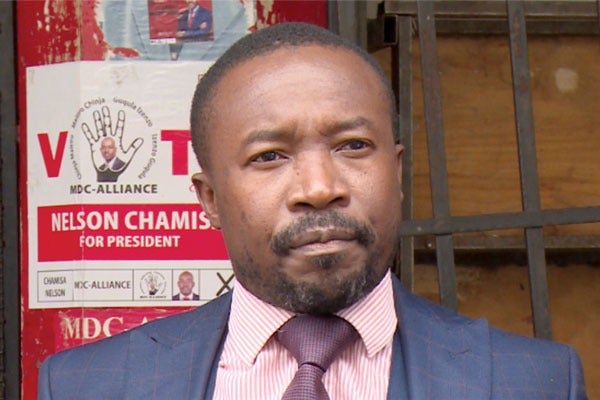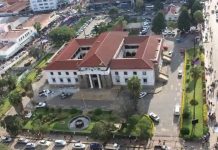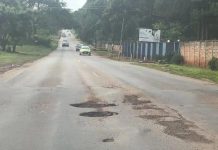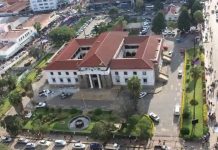New Harare mayor Jacob Mafume (JM) still believes that the capital has what it takes to regain its Sunshine City status if city fathers can get their act together. Last week, he sat down with NewsDay (ND) reporter Cliff Chiduku to understand his vision for the city, recalls of councillors by the MDC-T and service delivery, among other issues.
ND: Congratulations on becoming Harare mayor. However, you come at a difficult time when several councillors have been recalled. How has this affected council operations?
JM: Recalls have indeed affected service delivery. They affect the ability of people to be represented by a councillor of their choice. As you might be aware, councillors ensure that residents get services that are due to them and also that they are able to channel their grievances through their representatives. As it stands, several wards in Harare are orphaned, thanks to these unnecessary recalls. Where you recall a councillor, you are effectively denying a particular community the ability to be serviced. It is unfortunate that losers are recalling winners for self-aggrandisement.
ND: Any further recalls would collapse council, do you foresee a situation where the Local Government minister could use this as an excuse to appoint a commission to run the affairs of the capital?
JM: Further recalls will definitely lead to a commission. However, it’s a bit tricky because the Constitution says a commission can only be appointed for three months before elections are held. These recalls are an expensive exercise not worth pursuing. Service delivery is now being interrupted by unnecessary by-elections. Harare will be worse off if a commission is appointed. However, we do hope that sanity will prevail. What has happened is a malicious interpretation of a (Supreme Court) judgment to mean that the judgment allows for the reversal of election results. This is not only bizarre, but also demeans the institutions of democracy, particularly the Judiciary.
ND: I understand you have crafted a 100-day plan to stabilise the city. How much will it cost to implement your programme and where is the funding coming from?
JM: For now, the plan has no financial figures, but we have since asked officials to cost it. As you might be aware, our budget is crafted at the beginning of each calendar year so for now we can’t go beyond the budget, but what we can do is to prioritise certain areas of the plan. The stabilisation plan prioritises refuse collection, provision of potable water, road maintenance among others and all these things are also catered for in this year’s budget.
ND: Several council officials are facing corruption charges and so is your predecessor. How deeply entrenched is the culture of corruption in council? How will you deal with it?
JM: I must hasten to say everyone is innocent until proven guilty. However, be that as it may, we have looked at corruption and have adopted a zero tolerance to it. We are aware that corruption hampers service delivery, it also subverts council processes. We realised that we should increase transparency, we should reduce human element in decision-making and we must automate our processes. We also agreed to come up with an anti-corruption policy that protects whistleblowers, that also allows us to deal with corruption not in an evangelical manner, but in a precise and evidence-led manner which allows us to get to the bottom of the problem. As for the case against officials, these matters are sub judice, so I will not comment on them.
ND: What is your plan to solve Harare’s water challenges?
JM: It’s a fact that Harare has been facing water problems for years. Given this, we realised that we needed a long-term solution to this problem. A long-term solution entails building more supply dams — Musami and Kunzvi. The city’s water supply is being outstretched because it provides the precious liquid to many towns that surround it. We should increase the capacity of our water treatment plants. Once we manage to increase pumping capacity, we would be halfway in solving the problem. The other issue is to deal with non-revenue water — water that residents don’t pay for or that is lost through leaks and so on. We are making sure that our infrastructure doesn’t leak and that water is getting where it should. We are working on this as a medium-term intervention. We are determined to minimise non-revenue water.
We are also exploring how we can convert our post-paid system to prepaid. We have realised that the post-paid system doesn’t work, it costs more money to chase bad money. We need citizens to pay upfront so that we can be able to recycle the money in the provision of other essential services. We are better off with expensive water that is there than arguing about cheap water that is not available.
ND: Previous mayors have spoken out against the calibre of some councillors at Town House. Do you think you have competent councillors who can take Harare to a world-class city by 2025?
JM: They might have their own reasons for asking in terms of the calibre of councillors, but to ask it that way is to miss the point. Most of our cities were built by people who didn’t possess diplomas, let alone degrees. But now most of our city departments are manned by highly qualified people, but unfortunately, our cities are regressing. This means the problem lies elsewhere, not education. What qualification is required of a councillor to demand the provision of potable water in his ward? My point is: We must not blame “uneducated” councillors as the reason why our technocrats at town house are failing to provide services to ratepayers. What is required is collective effort of councillors and residents.
ND: Do you think our cities need executive mayors? If so, what should be exclusive areas of their jurisdiction?
JM: Remember, we have a population that is bigger than other countries so why should it be run by someone on part-time basis? You can’t run a city without an executive mayor. This is a misnomer. As Harare mayor, I spend most of my time responding to citizens’ concerns. For people on the streets, once you become mayor, you are responsible for everything — they don’t know that you are a ceremonial mayor. The difference is known by us politicians who would want to fix each other. We need to bring back the post of executive mayor as a matter of urgency. There is a lot that a mayor does that should be recognised by making him an executive, who is accountable to the electorate.
ND: Devolution is a well-established concept in our Constitution. Do you think Parliament has done enough pushing for devolution enabling legislation?
JM: Parliament has done absolutely nothing to push for devolution. I don’t know why Parliament is reluctant to push for Bills that operationalise devolution. The collection of road fees, provision of water, energy and transport, among others, should be delegated to metros. Everywhere in the world, these services are provided by metros. It is only in Zimbabwe where the central government pokes its nose in everything. But this is contrary to the spirit and letter of the Constitution which calls for the decentralisation of power.
ND: The opposition has controlled Harare for the past 18 years. There has been no long-term masterplans developed and adopted. Harare is growing on an ad hoc basis. Is this because councillors have no capacity to envision a city beyond their terms of office?






